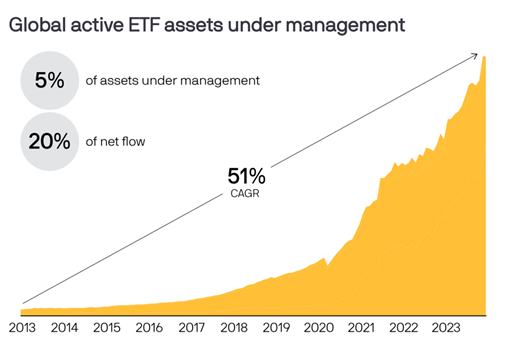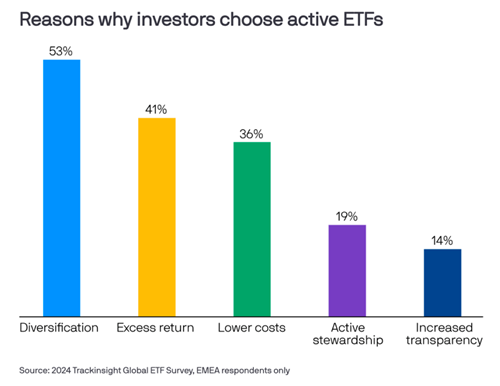
As dictated by the unpredictability of these times, the U.S. elections had an outcome that almost no one expected: a clear victory for one party and an elected president within 24 hours of voting. The U.S. stock market and Bitcoin surged, while Latin American currencies and the price of gold fell.
Republican Donald Trump will be the President of the United States for the second time. For the new term, analysts anticipate tax cuts (as per the campaign promise), an increase in the public deficit (a consequence of the former), a likely rise in inflation, higher interest rates, and, if Trump’s proposed tariff increases are enacted, greater protectionism.
In Latin America, the main impact of Trump’s victory would be a dollar appreciation and the resulting devaluation of local currencies.
Mexico, the country that could be most affected
Mexico’s President Claudia Sheinbaum congratulated the U.S. President-elect and sent a reassuring message to her fellow citizens: “There is no reason for concern… there will be a good relationship.”
The Mexican Stock Exchange (BMV), which initially opened with a sharp negative adjustment of 2.65%, breaching the 50,000-point support level, has recovered and by the afternoon was trading near the previous close (down 0.03%, standing at 50,816 points); meanwhile, the peso stood at 20.25 units per dollar. Analysts attribute the recovery in Mexican markets, in part, to Wall Street’s momentum.
During his campaign, Trump promised to impose tariffs ranging from 25% to 100% to pressure the Mexican government to curb migration and drug flow across the border. “If this threat materializes, it would severely impact Mexico’s exports, investment in the country, job creation, and economic growth,” said Gabriela Siller Pagaza, Head of Analysis at Banco Base, in a morning report to clients.
“However, it’s important to remember that Trump doesn’t always follow through on his threats, and the market knows this. Therefore, the peso’s depreciation the day after the elections (2.59%) is less than what was seen when he won his first term (8.30% in 2016). This suggests that the market sees risks but considers these threats as part of his negotiation strategy, which he may not necessarily fulfill to the letter,” the expert added.
In Brazil, the Ibovespa drops, and Google toys with investor nerves
The re-election of Donald Trump triggered an immediate 1.3% drop in the Ibovespa, Brazil’s main stock index, although by Wednesday afternoon, losses had moderated to 0.65%.
According to Bradesco, Trump’s victory and the expectation of higher global interest rates add uncertainty to Brazilian public debt and put pressure on the real. “This is why the fiscal adjustment package becomes even more important,” explains Fernando Honorato, Chief Economist at Bradesco.
Despite the initial reaction of the stock market, the dollar rose by 0.5%, reaching 5.78 reais. However, many Brazilians were misled by an incorrect exchange rate on Google, which showed the dollar rising to 6.19 reais.
This rate would have been a historic high if not for one detail: Google, which relies on data from Morningstar, showed an incorrect figure for several hours before correcting it. The tech company later informed the press that the cause of the error was unknown.
Timing is everything, and Trump’s re-election coincides with a critical day for the Brazilian market, as the government prepares to unveil a new spending cut program. Market reactions could intensify if the proposal fails to meet investors’ expectations. The government aims to reach a zero deficit next year.
Lula’s criticism of Trump ages poorly. The Brazilian President, previously known for his diplomatic pragmatism, quickly congratulated the U.S. President-elect, praising his victory.
“Democracy is the voice of the people and must always be respected. The world needs dialogue and joint efforts to achieve more peace, development, and prosperity,” said Lula, who recently compared Trump to a Nazi and publicly supported Kamala Harris in recent weeks.
Milei, exultant
Argentine President Javier Milei has always been direct in his support for Trump and expressed satisfaction with the Republican’s victory. Argentina is outside the international financial system, and the electoral change’s consequences could involve greater openness from the IMF in ongoing debt negotiations.
“For Argentina, the immediate impact should be marginal, given that government policy will remain unchanged. Dollar-denominated bond prices should be dragged down somewhat by high-yield, where we should see downward pressure, but they may benefit from the perception of a ‘Trump trade.’ A weaker currency and lower commodity prices are slightly negative factors, but the impact so far has been mild, and bonds should be more than offset by Milei’s affinity with President-elect Trump, which could be useful in future negotiations with the IMF, increasing the chances of more support,” states Max Capital in its daily analysis.
Javier Timerman, Managing Partner of Adcap Grupo Financiero, stated, “Donald Trump’s policies are not favorable for Argentina because they focus on protectionism, tax cuts, and the worsening of the fiscal deficit, which will lead to higher interest rates because the Federal Reserve will become much more restrictive regarding the possibility of an overheated economy and the return of inflation. In a high-interest rate and protectionist scenario, we will see a rise in the dollar globally, a drop in commodities due to the rising dollar, and that will affect Argentina.”
“On the positive side, we could say that the Trump-Milei relationship may unlock some type of disbursement, but it is also necessary to consider that the U.S. will likely contribute less to multilateralism, and surely the multilateral organizations from which Argentina needs funding will be underfunded,” added Timerman.
Chilean stock market rises
The Trump effect was felt in financial markets from the session’s early hours. The dollar jumped initially, climbing over 20 pesos—equivalent to a more than 2% appreciation compared to the previous close— reaching over 976 pesos, although the effect moderated as the hours passed. Still, the exchange rate closed the day at 960 pesos per dollar, representing a daily increase of 0.4%.
The local stock market also rose. Although the first few minutes of trading on the Santiago Stock Exchange saw a slight drop, the S&P IPSA benchmark closed with a 0.83% expansion, echoing global market growth and reaching near 6,580 points.
Among the most traded stocks of the day, LATAM Airlines rose by 1.7% and Cencosud by 1.5%, along with advances in Bci, Banco de Chile, and Santander, which climbed by 2.2%, 2.1%, and 1.8%, respectively. The largest gains, however, were in international platform shares, led by double-digit jumps in Wells Fargo and Bank of America, as well as in ETFs like Kraneshares’ CSI China Internet and iShares Bitcoin Trust.
General market notes
This Wednesday, the Dow Jones saw its largest gain in two years, reflecting enthusiasm for both Trump’s victory and the rapid resolution of the electoral contest.
One of the initial market shocks was the drop in gold, the asset that, globally, had dominated gains in 2024: “Gold sharply declined following Trump’s victory in the United States, which caused the dollar to soar. Remember that the dollar and gold typically have an inverse correlation, putting pressure on gold. At the same time, political uncertainty eases somewhat now that we know who the next U.S. president will be, reducing the appeal of gold as a safe-haven asset,” said Alexander Londoño, Market Analyst at ActivTrades.
Bitcoin’s all-time high: “As the preliminary results pointed to Donald Trump as the winner of the U.S. presidential election in the early hours of November 5, Bitcoin, the undisputed benchmark of the global crypto market, reached a new all-time high, surpassing $75,350,” according to the firm Bitso.
According to the New York Times, crypto companies supported Trump with about $130 million in campaign donations: “It paid off,” says the newspaper.
One of the big winners on election day was Elon Musk, one of Donald Trump’s most prominent supporters. On Wednesday, Tesla’s stock surged by up to 15%.













